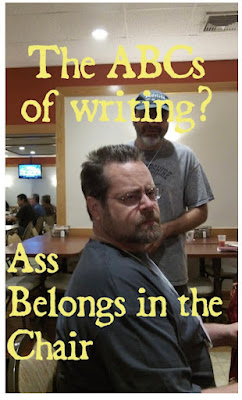ROI: Return On Investment
This week we’re talking about our worst ROI’s. Don’t think you’ve invested anything yet? You’re a writer, so at any stage of the game you’ve already invested your time. Hopefully it’s been well spent, though it could be argued that the hours sucked into various socials is a terrible ROI if it’s keept you from writing.
But what's my worst ROI? I’m not too far into my writing career and so I haven't had many opportunities to be wise or unwise. No cases of books hiding under the bed. Though by the time I have a book available in print I'm going to be so excited I expect it'll be hard to stop myself from ordering them!
So far I've invested in a few different things. The editing dollars I put into The Mars Strain before my turn in date to Recorded Books was well worth it. I count every conference I’ve attended as wise investmenets because at each one I’ve connected with new writers—and we all know that writer friends can be lifelines. And I spend money on my website…but I don’t think I can call that a bad decision because it’s a landing page for people looking me up. I view it as one of those business requirements.
When I look at what I’ve put into my writing career the number one investment is my time. I’ve poured hours and hours into writing, thinking about writing, blogging about writing, and reading about writing. A day doesn’t go by where I’m putting words to screen or thinking about the words that I will string together the next time I sit down to type.
As an example I’ll share the hours I put into two of my first drafts.
Dark Queen’s Daughter (fantasy complete at approx. 83,000 words) = 329.75 hours
Fisyk (sci-fi thriller at approx. 65,000 words) = 230.9 hours
I’ve kept word count spreadsheets for the last three manuscripts I’ve written, but only the last two had a column for hours per day. It’s a column I’ve decided to keep in my future trackers. I like being able to see how many hours per day were spent creating and then correlate them to time of day and word count total. But again, it’s all total time invested no matter how many words are being put down.
And on that note I bring you a blast from the past, April of 2022, and the image that surfaces in my mind whenever I catch myself wasting precious writing time:
James A. Moore’s words of wisdom will endure even though he has passed from this world. So if you need the nudge, get that ass back in the chair and write.
James's friend, Christopher Golden has organized a fund raiser to help offset Memorial Expenses and to support James's widow. It is still live if you wish to give.






